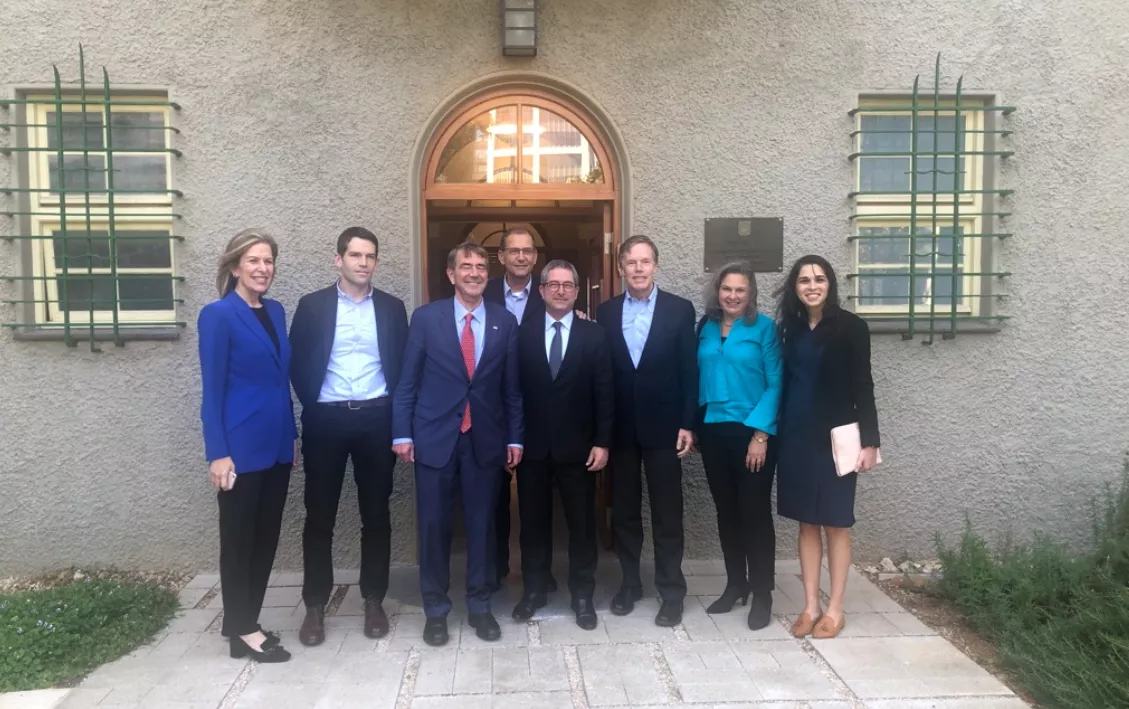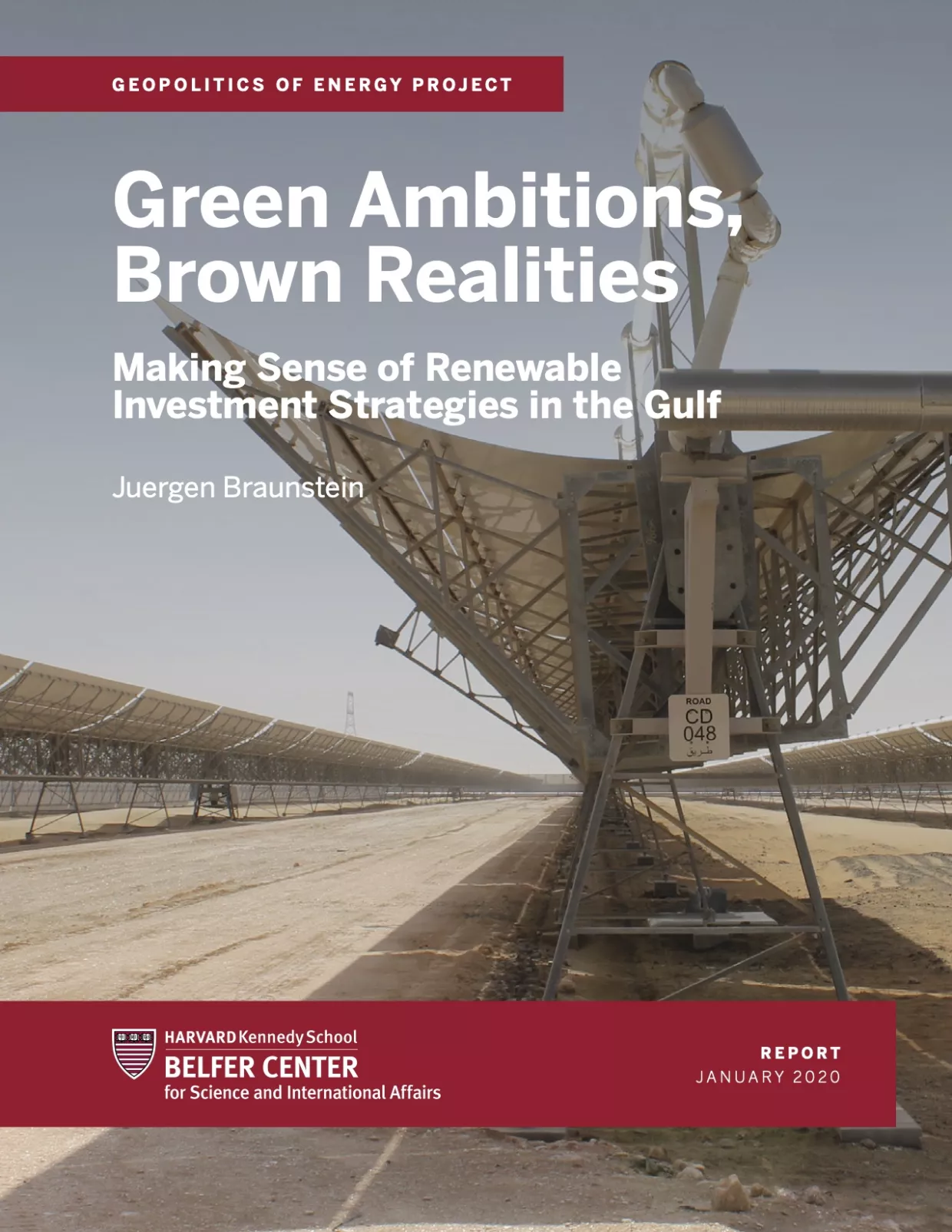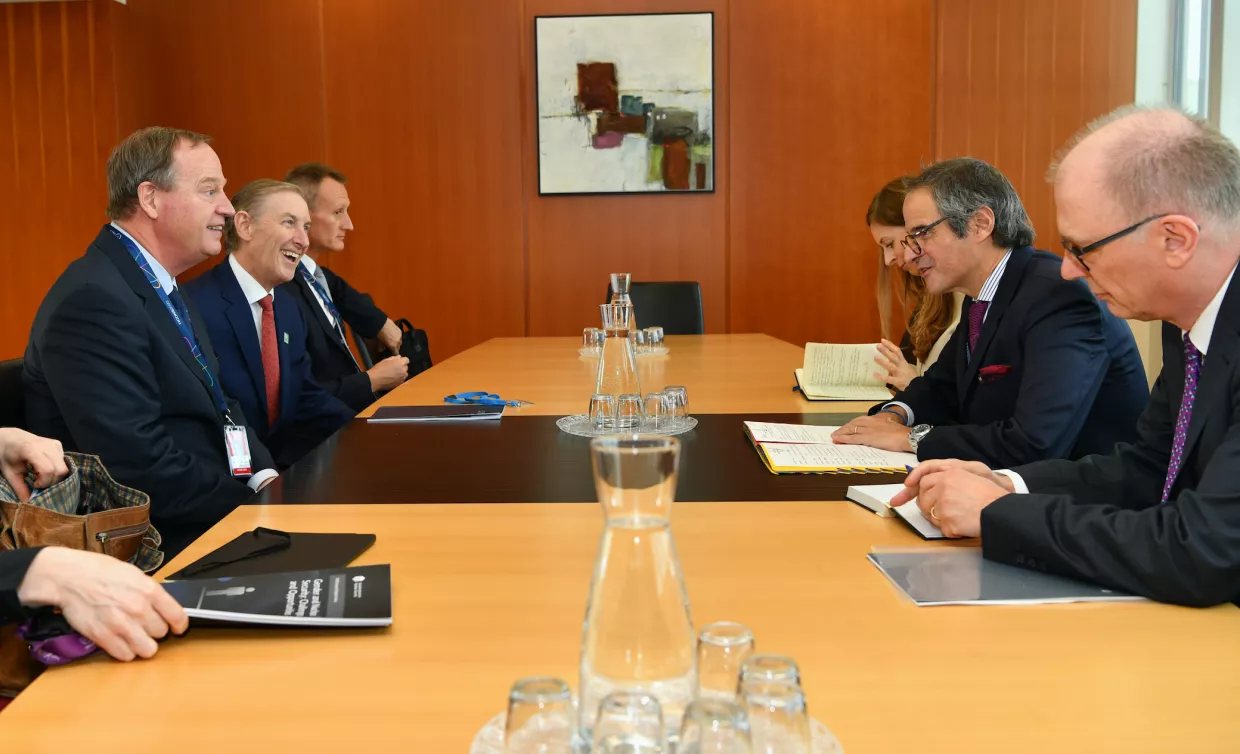U.S.-Israel Strategic Dialogue; GCC Energy Demands and Transitions; Iran and Security Concern
While the Middle East Initiative is focused entirely on the MENA region, several other Center programs are also working on issues related to the Middle East, including Future of Diplomacy, Geopolitics of Energy, and the Managing the Atom.
U.S.-Israel Strategic Dialogue

In December, the Belfer Center co-hosted the seventh annual U.S.-Israel Strategic Dialogue with the Institute for National Security Studies (INSS) in Israel. Future of Diplomacy Project (FDP) Faculty Director Nicholas Burns and Belfer Center Director Ash Carter led a small United States delegation to Tel Aviv to meet with their counterparts at INSS, hosted by Executive Director Major General Amos Yadlin. The delegations discussed key issues facing the U.S. and Israel, and Yadlin moderated a public discussion on relationship challenges with Carter and Lt. Gen. Gadi Eisenkot, former Chief of General Staff of the Israel Defense Forces.
In addition to Carter and Burns, Belfer Center and other U.S. participants included Executive Director Aditi Kumar, Senior Fellows Elizabeth Sherwood-Randall (former U.S. Deputy Secretary of Energy) and Ambassador Victoria Nuland (former U.S. Assistant Secretary of State for European and Eurasian Affairs), FDP’s Alison Hillegeist, and Foreign Affairs Executive Editor Daniel Kurtz-Phelan.
GCC Energy Demands and Transitions

The Geopolitics of Energy Project (GEP) explores the intersection of energy, security, and international politics.
Green Ambitions, Brown Realities, a paper recently completed by GEP Research Fellow Juergen Braunstein, focuses on Gulf Cooperation Council (GCC) countries’ ambitious restructuring plans for their carbon-driven economies, and the extent to which it makes sense for GCC states to invest aggressively in renewables.
Adnan Amin, a GEP Senior Fellow, is also exploring the advancement of renewable energy in the Middle East and the geopolitical implications of this global energy transition.
Iran and Security Concerns

In January, the Project on Managing the Atom joined with the Middle East Initiative to re-launch the Iran Working Group (IWG) with an expanded mission. The new IWG will focus not only on nuclear concerns that are once again increasing in the Middle East following the U.S. pullout from the Iran nuclear agreement, but also on a range of related issues such as the impact of the recent killing of Iran General Soleimani and increasing tensions throughout the Middle East.
Chaired by Project on Managing the Atom’s William Tobey and Matthew Bunn and Middle East Initiative’s Tarek Masoud, the Iran Working Group includes more than 20 members from different programs and disciplines throughout the Center and Harvard Kennedy School. A new IWG web page will consolidate Center-wide research and efforts related to Iran.
"Building Sustainable Relationships, Energy, and Security." Belfer Center Newsletter, Belfer Center for Science and International Affairs, Harvard Kennedy School. (Spring 2020).

